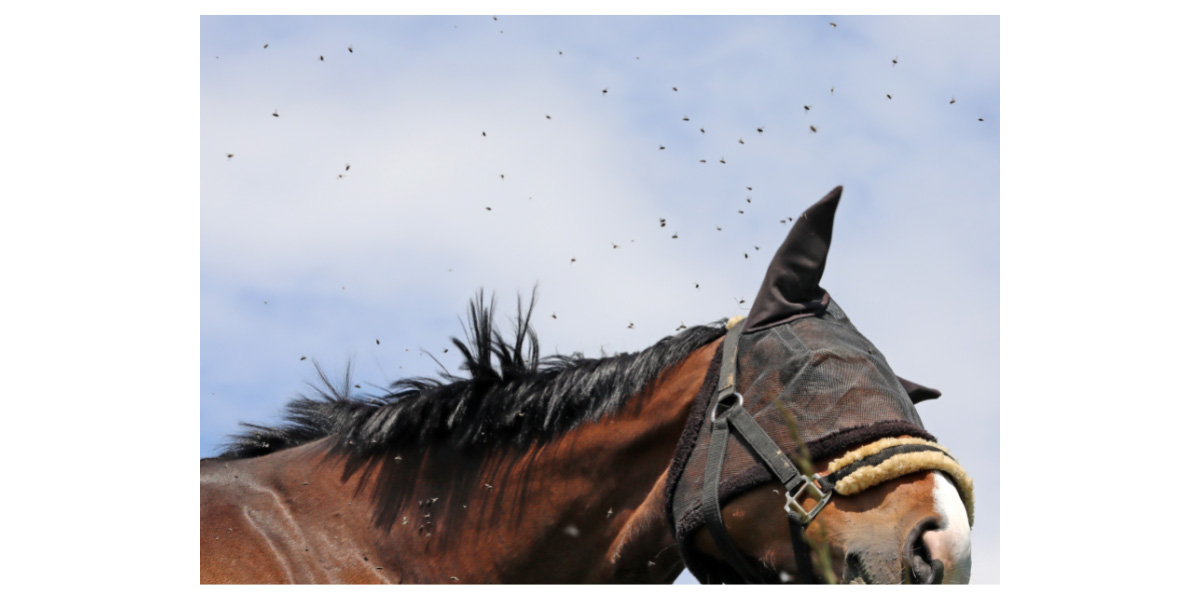
It’s that time of year again. Flies are attacking our horses in large numbers, shooed momentarily by the swish of a tail or the flick of an ear, only to bite again and again. For horses that suffer insect bite hypersensitivity, also known as summer seasonal recurrent dermatitis (SSRD) or sweet itch, flying bugs that bite are more than an annoyance.
What Causes Sweet Itch in Horses?
Many flying, biting pests produce substances in their saliva that make their victims itchy. Some horses develop an allergy to the saliva of certain insects, causing their immune system to overreact when they’re bitten.
Horses with sweet itch are usually triggered by Culicoides biting midges (sometimes called no-see-ums), but the condition can also flare up when they’re exposed to mosquitoes, black flies, gnats, and/or deer flies.
What Are The Symptoms of Sweet Itch in Horses?
Biting flies pester all horses once in a while, but for those with sweet itch, the reaction will be noticeably more severe. It usually affects the mane and base of the tail, which may develop bald, crusty patches of skin that tend to look grayish in appearance, and may weep or bleed.
In severe cases, the horse can be so miserable that they may spend most of the day biting, scratching, and rubbing their skin instead of grazing, and they can actually lose weight.
Another key indicator is that sweet itch is usually seasonal. The flies that cause it are most active from March until November, and symptoms will subside in the winter when their populations have died down.
Which Horses are at Risk for Sweet Itch?
Sweet itch is the most common allergy in horses, and it’s also the most common cause of itching. Onset typically begins after two years old and tends to get more severe every summer as the horse gets older. It affects at least 5% and as many as 60% of horses in some regions, especially those with warm climates.
How Is Sweet Itch Treated?
Unfortunately, there is no known cure for sweet itch. There are emerging treatments like immunotherapy that can help build up the immune system’s tolerance to components in the biting midge’s saliva, but these treatments are not yet widely available.
Supplementation of omega-3 fatty acids from ground flaxseeds has shown some promise of helping to strengthen the immune system and improve skin health, but will not provide any fast-acting relief.
For mild cases, you can wash your horse with EQyss Micro-Tek Equine Shampoo and use Micro-Tek Equine Spray as needed to minimize inflammation and help prevent infection.
Steroids and antihistamines are sometimes necessary to get symptoms under control so the skin can heal. Left untreated, a severe flare-up can lead to complications like a skin infection.
But by far your horse’s best defense is fly control. You can protect your horse from biting flies by:
- Using fans in the stable to blow flies away
- Using Protective gear like a fly rug and fly mask
- Applying Absorbine UltraShield EX Fly Spray to your horse’s coat
- Eliminating standing water, where flies spawn
- Planting natural repellant plants like lavender, lemongrass, and basil
- Stabling your horse during most active hours, usually dawn and late afternoon







































